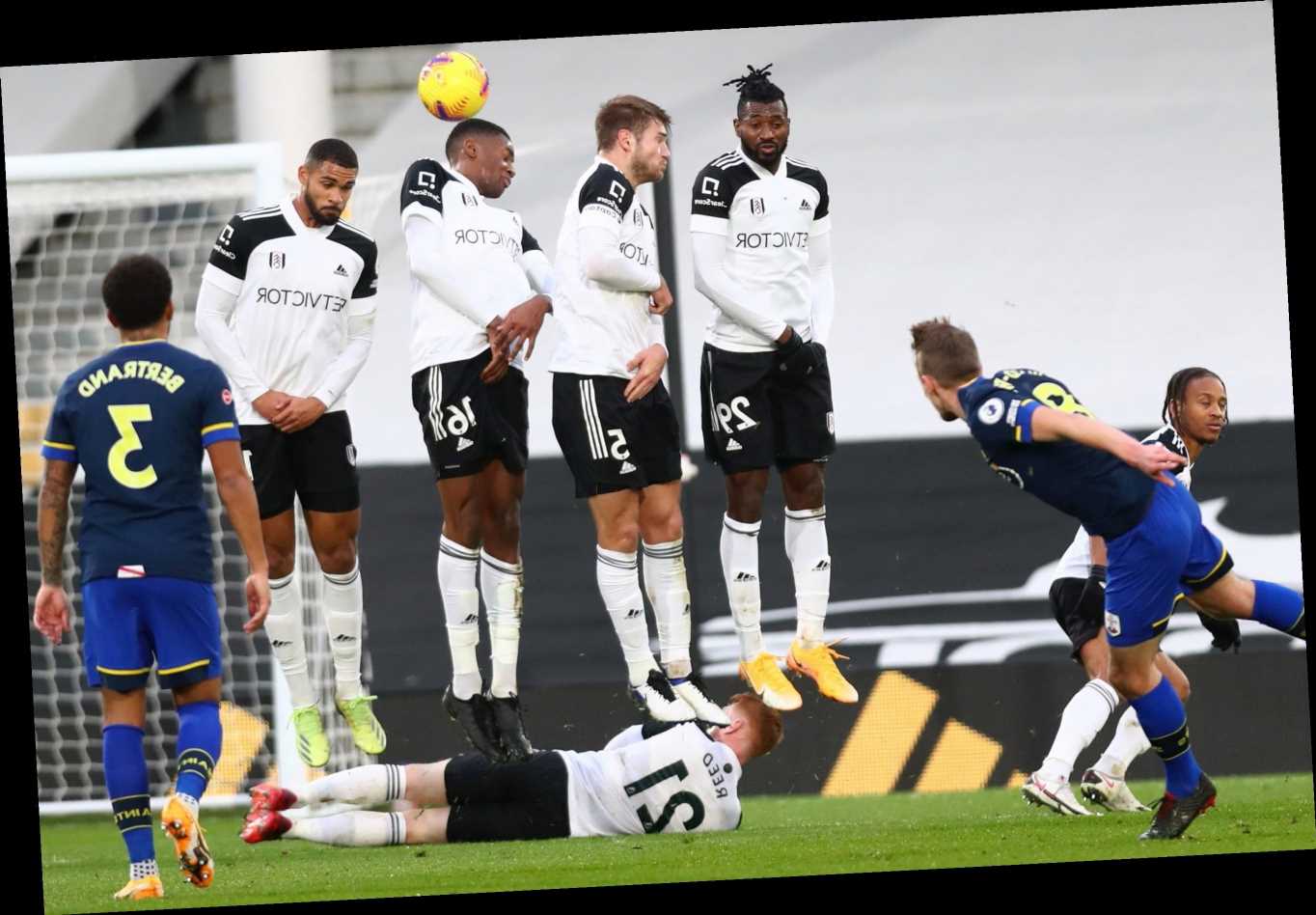NEW RESEARCH claims to have discovered a goalkeeper is less likely to save a free kick if there is a wall in front of them.
Opposition players are required to be ten yards away from the ball when a free kick is taken, with a number of those defending traditionally standing side-by-side to make it harder for attackers to score.
However, this technique has now been called into question after researchers from Queen's University Belfast found the wall gets in the way of the goalkeeper's eyesight.
And it also slows down the keeper’s reaction time.
They discovered a goalkeeper has their sight blocked for around 200 milliseconds and their reaction time is up to 90 milliseconds slower when a wall is in place.
Researchers calculate that with a wall in place the stopper is 13 per cent less likely to make a successful save.
And they claim it applies to all different techniques of free-kick – from those who bend it like Beckham to the piledrivers of Cristiano Ronaldo.
Co-auth Professor Cathy Craig said: “In a nutshell, placing a defensive wall could actually result in the goalkeeper conceding more goals.”
The results, which are published in PLOS ONE, were discovered in virtual reality experiments that involved 25 participants in their 20s and 30s – with ten of them being skilled goalkeepers.
And they applied to both groups of those who took part, including those who only ever played outfield.
Co-author Dr Joost Dessing explained: “While the defensive wall strategy is effective in some cases, the wall frequently obstructs the goalkeeper's initial view of the moving ball.
“Although the negative effects of this obstruction have been assumed by experts, they have not been scientifically quantified until now.
“Our study shows when the view of the ball is initially obstructed, goalkeepers wait longer before starting to move, which leaves them less time to make that all important save.”
The position of the kick also plays a big role, with those taken from a more central position posing a greater threat to the keeper if they use a wall.
It is a long held belief and tactic to place a wall as close as possible to the taker in order to reduce the amount of goal for the attacker to aim at.
But now it is claimed the wall being in the way of the goalkeeper is doing more harm than good.
Professor Craig added: “As with many sports, goalkeeping success is determined by the ability to get to the right place, at the right time to pull off a save.
“Although goalkeepers might claim to 'see' the ball through the wall of players before it is kicked, they will most likely not see how that initial part of the ball trajectory unfolds just after it has been kicked.
“It's that important information the brain needs to make a decision about where the ball is going and when it will get there.”
James Devonald, development goalkeeping coach at Swansea City, believes there’s no right or wrong answer when it comes to a keeper getting rid of their wall.
He told Dream Team last year: “Every goalkeeper should identify, based on their live assessment of the free-kick, whether they want a wall or not.
“There are various different aspects which will affect a goalkeeper’s decision on whether to set a wall or not: where it is, who’s stood over it, what the pre-match analysis has shown the likely outcome to be, and so on.
“I’ll always trust my goalkeeper to assess the situation and make the correct decision, as long as they can back that decision up with a reason and success.”
Whether or not we see the wall done away with once-and-for-all remains to be seen, although new tactics are being introduced each season.
The latest trend for defending set-pieces has seen a defender deployed to lay down behind the wall in order to block the shooter from rolling the ball under the defenders.
Source: Read Full Article








